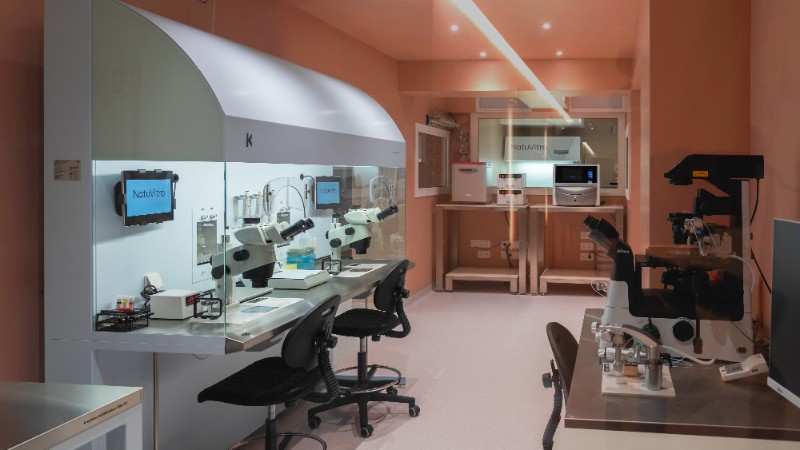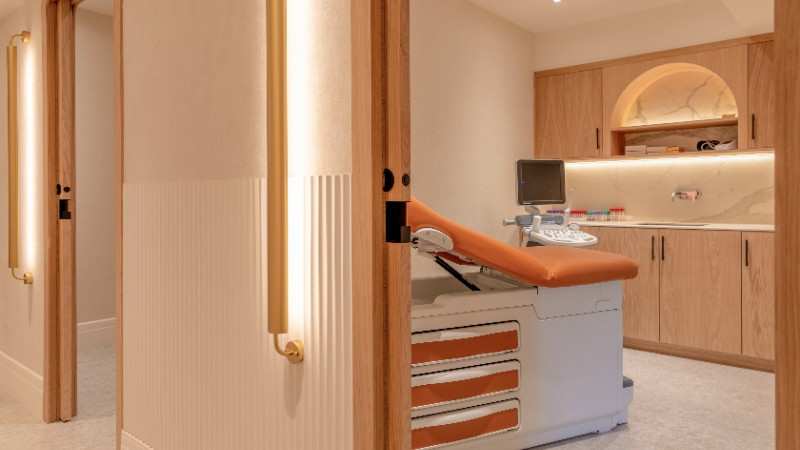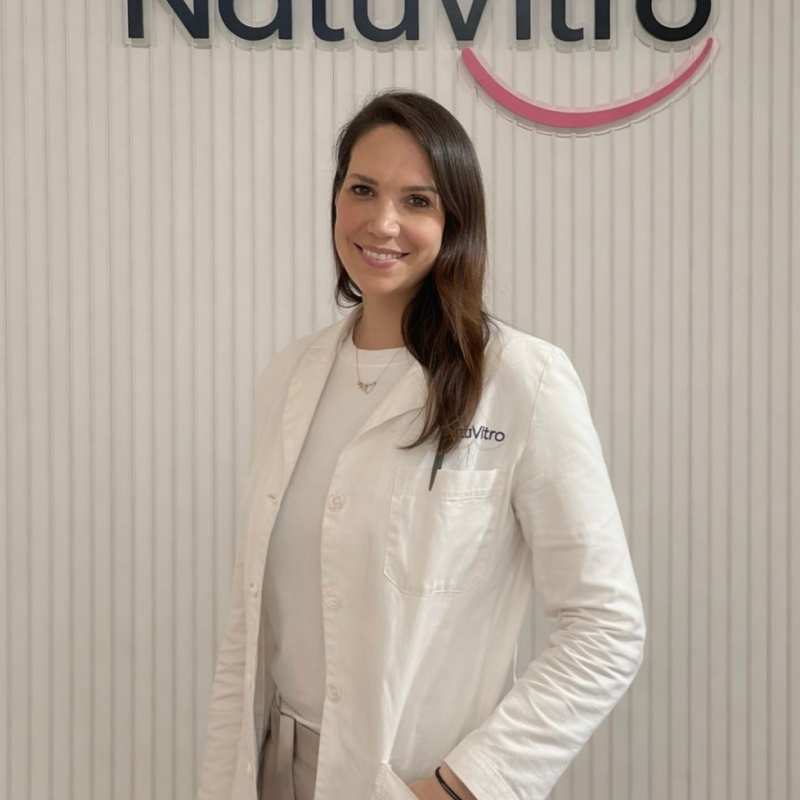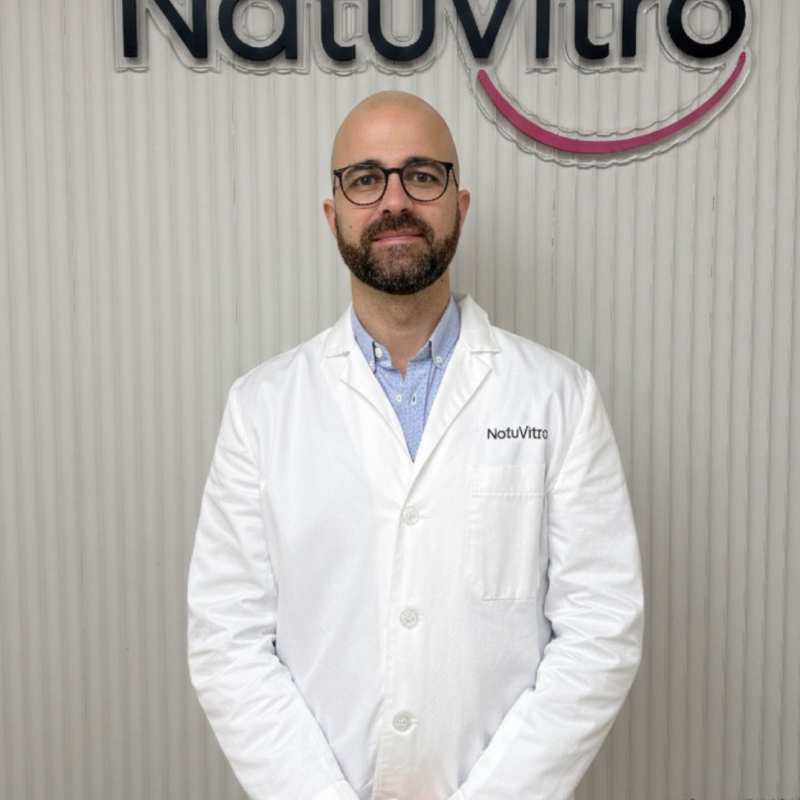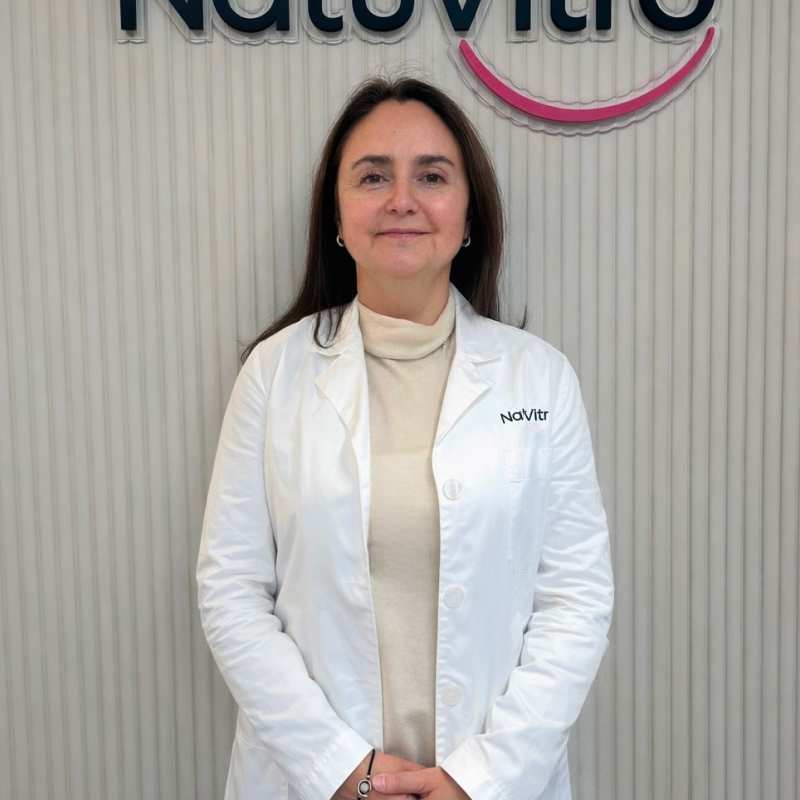
Introduction
In Vitro Fertilization (IVF) represents a significant milestone in reproductive technology, offering hope to millions struggling with infertility. Integral to its evolution is the advancement of genetic testing, which has transformed the process from mere conception assistance to a platform for ensuring healthier pregnancies. This analysis delves into the future of genetic testing within the realm of IVF, exploring its historical context, current state, technological advancements, and the intricate web of ethical, legal, and societal implications. As we stand at the crossroads of remarkable scientific progress and complex moral debates, understanding the trajectory of genetic testing in IVF is crucial for healthcare professionals, prospective parents, and policymakers alike.
Historical Context of Genetic Testing in IVF
The integration of genetic testing into IVF is a story of both scientific ingenuity and ethical controversy. Initially, IVF, developed in the late 1970s, focused solely on assisting conception. However, as genetic understanding deepened, the 1990s saw the emergence of Preimplantation Genetic Diagnosis (PGD), a revolutionary technique allowing genetic examination of embryos before implantation. This marked a pivotal shift from merely aiding fertility to actively selecting embryos based on genetic health. Over time, advancements in genetic sequencing and embryology have refined these techniques, making them more accessible and reliable. Today, genetic testing in IVF not only addresses inherited genetic disorders but also screens for chromosomal normality, significantly reducing the risk of miscarriage and genetic abnormalities. This historical evolution sets the stage for understanding the current and future landscape of genetic testing in IVF, highlighting the balance between technological progress and ethical responsibility.
Current State of Genetic Testing in IVF
Currently, genetic testing in IVF is primarily utilized for two purposes: Preimplantation Genetic Diagnosis (PGD) and Preimplantation Genetic Screening (PGS). PGD is employed to test embryos for specific genetic disorders, particularly when parents are known carriers of genetic diseases. This method significantly reduces the risk of transmitting conditions like cystic fibrosis or Tay-Sachs disease to the offspring. PGS, on the other hand, involves screening embryos for chromosomal normality, ensuring the selection of embryos with the correct number of chromosomes. This reduces the risk of miscarriages and disorders such as Down syndrome.
Despite these advancements, challenges persist. The accuracy of genetic tests is not absolute, and there is an ongoing debate regarding the potential for false positives or negatives. Ethical considerations also loom large. Questions regarding the extent of genetic selection, the potential for non-medical uses such as selecting preferred traits, and the societal implications of such choices are intensely debated. Moreover, the high cost of IVF coupled with genetic testing remains a barrier for many, raising concerns about accessibility and equity in reproductive healthcare.
Technological Advances Impacting Genetic Testing in IVF
The future of genetic testing in IVF is intertwined with emerging technologies. CRISPR-Cas9, a groundbreaking gene-editing tool, offers the potential to not just select embryos free of genetic disorders, but to actively repair genetic defects in embryos. This could dramatically expand the scope of genetic interventions in IVF, but also raises complex ethical issues about gene editing in human embryos.
Artificial Intelligence (AI) and Machine Learning (ML) are also making inroads into genetic analysis. AI algorithms can analyze vast genetic datasets more efficiently and accurately than ever before, potentially identifying risk factors and genetic markers that were previously undetectable. This could lead to more precise and personalized approaches in IVF treatments.
Additionally, advancements in whole-genome sequencing and non-invasive sampling techniques could allow for more comprehensive and less invasive genetic screening processes. These technologies promise to make genetic testing in IVF more accurate, affordable, and accessible, potentially revolutionizing the field.
Ethical, Legal, and Social Implications
The expansion of genetic testing in IVF raises profound ethical questions. The prospect of 'designer babies', where parents select traits like intelligence or physical appearance, sparks intense moral debates about the nature of human selection and the potential for genetic inequality. There are also concerns about genetic discrimination and privacy, as increased genetic knowledge could lead to individuals being treated differently based on their genetic profile.
Legally, countries vary greatly in their regulation of genetic testing in IVF. Some have strict guidelines on what genetic tests are permissible, while others have more lenient or undefined policies. This legal patchwork creates challenges for international cooperation and consistency in ethical standards.
Socially, the implications are vast. Genetic testing in IVF could lead to shifts in societal perceptions of disability, diversity, and what constitutes 'normal' or 'desirable' genetic traits. As genetic testing becomes more prevalent, society will need to grapple with these profound changes.
Future Predictions and Potential Developments
Looking ahead, the future of genetic testing in IVF is likely to be shaped by both technological advancements and societal attitudes. Experts predict a continued increase in the precision and scope of genetic tests, potentially leading to a future where genetic screening is a routine part of IVF. This could lead to a significant decrease in genetic diseases, but also to new ethical and societal challenges.
Emerging technologies like gene editing could one day allow for the correction of genetic defects in embryos, but this remains a controversial prospect. The balance between benefiting from genetic advancements and maintaining ethical boundaries will be a key area of focus.
Public perception and legal frameworks will also play critical roles in shaping the future of genetic testing in IVF. As the technology evolves, so too will the debates around its use, making it a dynamic and continually evolving field.
Conclusion
The future of genetic testing in IVF is poised at an exciting yet complex intersection of science, ethics, and society. While the potential to reduce genetic diseases and improve IVF success rates is immense, it comes with ethical dilemmas and societal implications that must be carefully navigated. Balancing technological advancement with ethical responsibility will be crucial in shaping a future where genetic testing in IVF is used judiciously and equitably. As we venture into this future, continuous dialogue among scientists, ethicists, policymakers, and the public will be essential in guiding this journey responsibly and thoughtfully.
Our experts are ready to examine your case history, clarify your choices, and address every question you have.
Don't wait to make informed decisions – your personalized guidance awaits!
- Spain (España)+34
- France (La France)+33
- Italy (Italia)+39
- United Kingdom+44
- United States+1
- Belgium (België)+32
- Switzerland (Schweiz/Suisse)+41
- Germany (Deutschland)+49
- Netherlands (Nederland)+31
- Afghanistan (افغانستان)+93
- Albania (Shqipëri)+355
- Algeria (الجزائر)+213
- American Samoa+1
- Andorra+376
- Angola+244
- Anguilla+1
- Antigua and Barbuda+1
- Argentina+54
- Armenia (Հայաստան)+374
- Aruba+297
- Ascension Island+247
- Australia+61
- Austria (Österreich)+43
- Azerbaijan (Azərbaycan)+994
- Bahamas+1
- Bahrain (البحرين)+973
- Bangladesh (বাংলাদেশ)+880
- Barbados+1
- Belarus (Беларусь)+375
- Belize+501
- Benin (Bénin)+229
- Bermuda+1
- Bhutan (འབྲུག)+975
- Bolivia+591
- Bosnia and Herzegovina (Босна и Херцеговина)+387
- Botswana+267
- Brazil (Brasil)+55
- British Indian Ocean Territory+246
- British Virgin Islands+1
- Brunei+673
- Bulgaria (България)+359
- Burkina Faso+226
- Burundi (Uburundi)+257
- Cambodia (កម្ពុជា)+855
- Cameroon (Cameroun)+237
- Canada+1
- Cape Verde (Kabu Verdi)+238
- Caribbean Netherlands+599
- Cayman Islands+1
- Central African Republic (République centrafricaine)+236
- Chad (Tchad)+235
- Chile+56
- China (中国)+86
- Christmas Island+61
- Cocos (Keeling) Islands+61
- Colombia+57
- Comoros (جزر القمر)+269
- Congo (DRC) (Jamhuri ya Kidemokrasia ya Kongo)+243
- Congo (Republic) (Congo-Brazzaville)+242
- Cook Islands+682
- Costa Rica+506
- Côte d’Ivoire+225
- Croatia (Hrvatska)+385
- Cuba+53
- Curaçao+599
- Cyprus (Κύπρος)+357
- Czech Republic (Česká republika)+420
- Denmark (Danmark)+45
- Djibouti+253
- Dominica+1
- Dominican Republic (República Dominicana)+1
- Ecuador+593
- Egypt (مصر)+20
- El Salvador+503
- Equatorial Guinea (Guinea Ecuatorial)+240
- Eritrea+291
- Estonia (Eesti)+372
- Eswatini+268
- Ethiopia+251
- Falkland Islands (Islas Malvinas)+500
- Faroe Islands (Føroyar)+298
- Fiji+679
- Finland (Suomi)+358
- French Guiana (Guyane française)+594
- French Polynesia (Polynésie française)+689
- Gabon+241
- Gambia+220
- Georgia (საქართველო)+995
- Ghana (Gaana)+233
- Gibraltar+350
- Greece (Ελλάδα)+30
- Greenland (Kalaallit Nunaat)+299
- Grenada+1
- Guadeloupe+590
- Guam+1
- Guatemala+502
- Guernsey+44
- Guinea (Guinée)+224
- Guinea-Bissau (Guiné Bissau)+245
- Guyana+592
- Haiti+509
- Honduras+504
- Hong Kong (香港)+852
- Hungary (Magyarország)+36
- Iceland (Ísland)+354
- India (भारत)+91
- Indonesia+62
- Iran (ایران)+98
- Iraq (العراق)+964
- Ireland+353
- Isle of Man+44
- Israel (ישראל)+972
- Italy (Italia)+39
- Jamaica+1
- Japan (日本)+81
- Jersey+44
- Jordan (الأردن)+962
- Kazakhstan (Казахстан)+7
- Kenya+254
- Kiribati+686
- Kosovo+383
- Kuwait (الكويت)+965
- Kyrgyzstan (Кыргызстан)+996
- Laos (ລາວ)+856
- Latvia (Latvija)+371
- Lebanon (لبنان)+961
- Lesotho+266
- Liberia+231
- Libya (ليبيا)+218
- Liechtenstein+423
- Lithuania (Lietuva)+370
- Luxembourg+352
- Macau (澳門)+853
- North Macedonia (Македонија)+389
- Madagascar (Madagasikara)+261
- Malawi+265
- Malaysia+60
- Maldives+960
- Mali+223
- Malta+356
- Marshall Islands+692
- Martinique+596
- Mauritania (موريتانيا)+222
- Mauritius (Moris)+230
- Mayotte+262
- Mexico (México)+52
- Micronesia+691
- Moldova (Republica Moldova)+373
- Monaco+377
- Mongolia (Монгол)+976
- Montenegro (Crna Gora)+382
- Montserrat+1
- Morocco (المغرب)+212
- Mozambique (Moçambique)+258
- Myanmar (Burma) (မြန်မာ)+95
- Namibia (Namibië)+264
- Nauru+674
- Nepal (नेपाल)+977
- New Caledonia (Nouvelle-Calédonie)+687
- New Zealand+64
- Nicaragua+505
- Niger (Nijar)+227
- Nigeria+234
- Niue+683
- Norfolk Island+672
- North Korea (조선 민주주의 인민 공화국)+850
- Northern Mariana Islands+1
- Norway (Norge)+47
- Oman (عُمان)+968
- Pakistan (پاکستان)+92
- Palau+680
- Palestine (فلسطين)+970
- Panama (Panamá)+507
- Papua New Guinea+675
- Paraguay+595
- Peru (Perú)+51
- Philippines+63
- Poland (Polska)+48
- Portugal+351
- Puerto Rico+1
- Qatar (قطر)+974
- Réunion (La Réunion)+262
- Romania (România)+40
- Russia (Россия)+7
- Rwanda+250
- Saint Barthélemy+590
- Saint Helena+290
- Saint Kitts and Nevis+1
- Saint Lucia+1
- Saint Martin (Saint-Martin (partie française))+590
- Saint Pierre and Miquelon (Saint-Pierre-et-Miquelon)+508
- Saint Vincent and the Grenadines+1
- Samoa+685
- San Marino+378
- São Tomé and Príncipe (São Tomé e Príncipe)+239
- Saudi Arabia (المملكة العربية السعودية)+966
- Senegal (Sénégal)+221
- Serbia (Србија)+381
- Seychelles+248
- Sierra Leone+232
- Singapore+65
- Sint Maarten+1
- Slovakia (Slovensko)+421
- Slovenia (Slovenija)+386
- Solomon Islands+677
- Somalia (Soomaaliya)+252
- South Africa+27
- South Korea (대한민국)+82
- South Sudan (جنوب السودان)+211
- Spain (España)+34
- Sri Lanka (ශ්රී ලංකාව)+94
- Sudan (السودان)+249
- Suriname+597
- Svalbard and Jan Mayen+47
- Sweden (Sverige)+46
- Syria (سوريا)+963
- Taiwan (台灣)+886
- Tajikistan+992
- Tanzania+255
- Thailand (ไทย)+66
- Timor-Leste+670
- Togo+228
- Tokelau+690
- Tonga+676
- Trinidad and Tobago+1
- Tunisia (تونس)+216
- Turkey (Türkiye)+90
- Turkmenistan+993
- Turks and Caicos Islands+1
- Tuvalu+688
- U.S. Virgin Islands+1
- Uganda+256
- Ukraine (Україна)+380
- United Arab Emirates (الإمارات العربية المتحدة)+971
- Uruguay+598
- Uzbekistan (Oʻzbekiston)+998
- Vanuatu+678
- Vatican City (Città del Vaticano)+39
- Venezuela+58
- Vietnam (Việt Nam)+84
- Wallis and Futuna (Wallis-et-Futuna)+681
- Western Sahara (الصحراء الغربية)+212
- Yemen (اليمن)+967
- Zambia+260
- Zimbabwe+263
- Åland Islands+358
Visit our clinic
Location
Call us now
Leave a message

